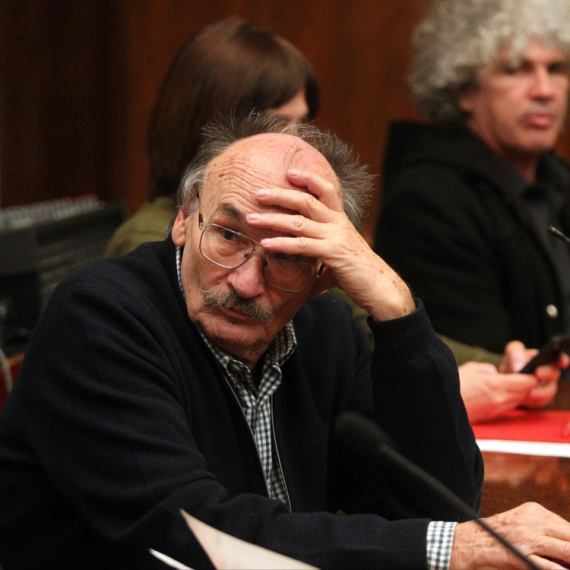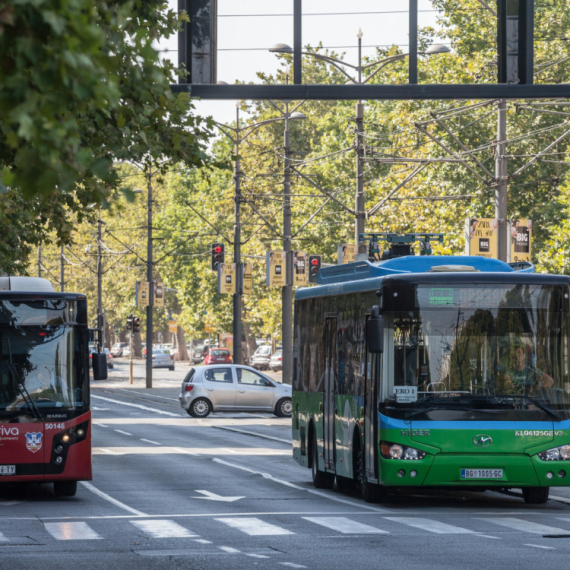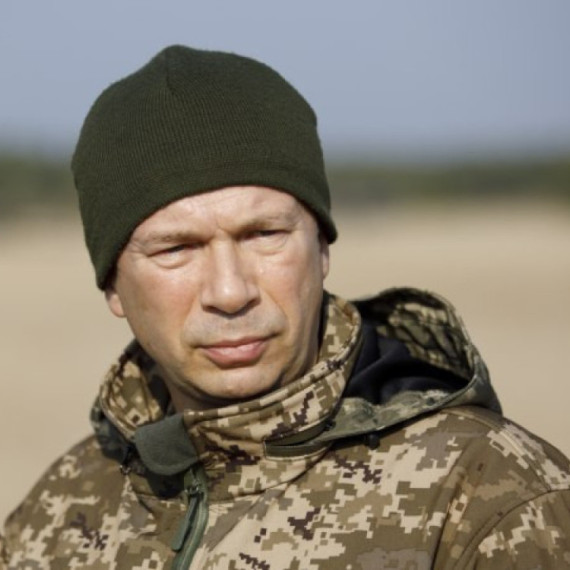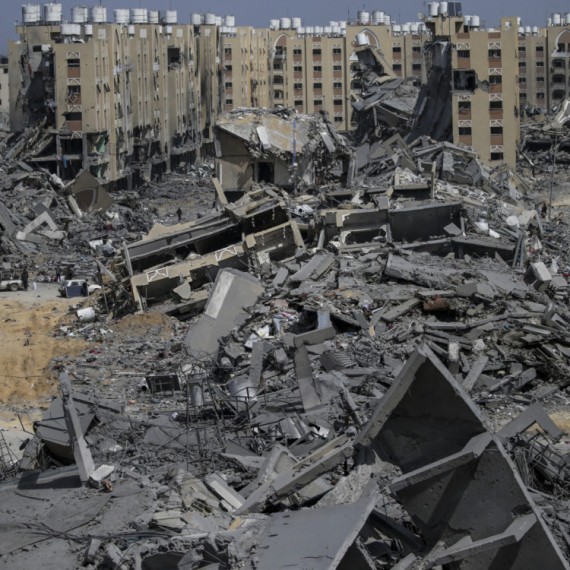Belgrade hosts conference on organized crime
A regional ministerial conference on the fight against organized crime began this Monday in Belgrade.
Monday, 28.09.2009.
10:30

A regional ministerial conference on the fight against organized crime began this Monday in Belgrade. The two-day conference will gather interior and justice ministers from around the region to discuss cooperation in combating organized crime. Belgrade hosts conference on organized crime European officials, and representatives of many organizations, including OSCE, the Council of Europe, Europol, Interpol and Eurojust are also taking part. The conference was opened by President Boris Tadic, who stated that the government in Belgrade is determined to make a decisive blow to organized crime, both within Serbia and the region, and that it counts on the European Union's assistance. Tadic underscored that the EU offers creation of a social environment that is suitable for the fight against organized crime, and assistance of its institutions that the Western Balkan societies had never had in their history. “The political fragmentation of societies in Europe did not mean fragmentation of criminal organizations as well. The political fragmentation in the Balkans has accelerated the cooperation among organized criminal groups, which have always been one step ahead of the institutions that fight them,” said Tadic. European Commission Vice President Jacques Barrot, Justice Minister Snezana Malovic, Interior Minister Ivica Dacic, and Head of the OSCE Mission to Serbia Dimitrios Kypreos were also present at the opening. Barrot said that organized crime in the Balkan region could endanger its European integration. “Organized crime is, without a doubt, an international, world issue. Obviously, the problem is related not only to the Western Balkans, but the problem has special weight in the Balkans and could endanger stability in the region and even the region’s EU integration,” he told the conference. The EC official added that organized crime includes drug, organ, human trafficking, illegal immigration, and that money gathered in this way is used for further criminal activities, adding that last year alone, some 100 tons of heroin was smuggled through the Balkans, worth EUR 416mn. Barrot said that efforts are being made in the region to fight organize crime, adding that the adoption of laws, reforms and development of regional cooperation is a good start. Barrot, who is the European Commission justice and security vice president, commended on the actions of the Initiative for Cooperation in Southeast Europe, stating that it is a good example of cooperation in the fight against organized crime in the region, stressing that stopping organized crime will be a real test for the effectiveness of the courts and the seizure of property gained through crime. He stated that all European countries must invest fund in the fight against crime in order for the European Union to be a place in which people feel protected. For this reason, according to Barrot, the EU has prepared the so-called Stockholm Program, which should be adopted by the end of the year, and is related mainly to the fight against organized crime. The main topic of the conference is the strengthening of regional and transnational cooperation as a prerequisite for successful court processes. The conference, dubbed “Facing the Challenges of Organized Crime and Serious Crimes on the territory of the Western Balkans”, is organized by the Justice and Interior Ministries of Serbia and the State Public Prosecution. Dacic and Tadic at the conference today (Tanjug)
Belgrade hosts conference on organized crime
European officials, and representatives of many organizations, including OSCE, the Council of Europe, Europol, Interpol and Eurojust are also taking part.The conference was opened by President Boris Tadić, who stated that the government in Belgrade is determined to make a decisive blow to organized crime, both within Serbia and the region, and that it counts on the European Union's assistance.
Tadić underscored that the EU offers creation of a social environment that is suitable for the fight against organized crime, and assistance of its institutions that the Western Balkan societies had never had in their history.
“The political fragmentation of societies in Europe did not mean fragmentation of criminal organizations as well. The political fragmentation in the Balkans has accelerated the cooperation among organized criminal groups, which have always been one step ahead of the institutions that fight them,” said Tadić.
European Commission Vice President Jacques Barrot, Justice Minister Snežana Malović, Interior Minister Ivica Dačić, and Head of the OSCE Mission to Serbia Dimitrios Kypreos were also present at the opening.
Barrot said that organized crime in the Balkan region could endanger its European integration.
“Organized crime is, without a doubt, an international, world issue. Obviously, the problem is related not only to the Western Balkans, but the problem has special weight in the Balkans and could endanger stability in the region and even the region’s EU integration,” he told the conference.
The EC official added that organized crime includes drug, organ, human trafficking, illegal immigration, and that money gathered in this way is used for further criminal activities, adding that last year alone, some 100 tons of heroin was smuggled through the Balkans, worth EUR 416mn.
Barrot said that efforts are being made in the region to fight organize crime, adding that the adoption of laws, reforms and development of regional cooperation is a good start.
Barrot, who is the European Commission justice and security vice president, commended on the actions of the Initiative for Cooperation in Southeast Europe, stating that it is a good example of cooperation in the fight against organized crime in the region, stressing that stopping organized crime will be a real test for the effectiveness of the courts and the seizure of property gained through crime.
He stated that all European countries must invest fund in the fight against crime in order for the European Union to be a place in which people feel protected.
For this reason, according to Barrot, the EU has prepared the so-called Stockholm Program, which should be adopted by the end of the year, and is related mainly to the fight against organized crime.
The main topic of the conference is the strengthening of regional and transnational cooperation as a prerequisite for successful court processes.
The conference, dubbed “Facing the Challenges of Organized Crime and Serious Crimes on the territory of the Western Balkans”, is organized by the Justice and Interior Ministries of Serbia and the State Public Prosecution.


























































Komentari 13
Pogledaj komentare